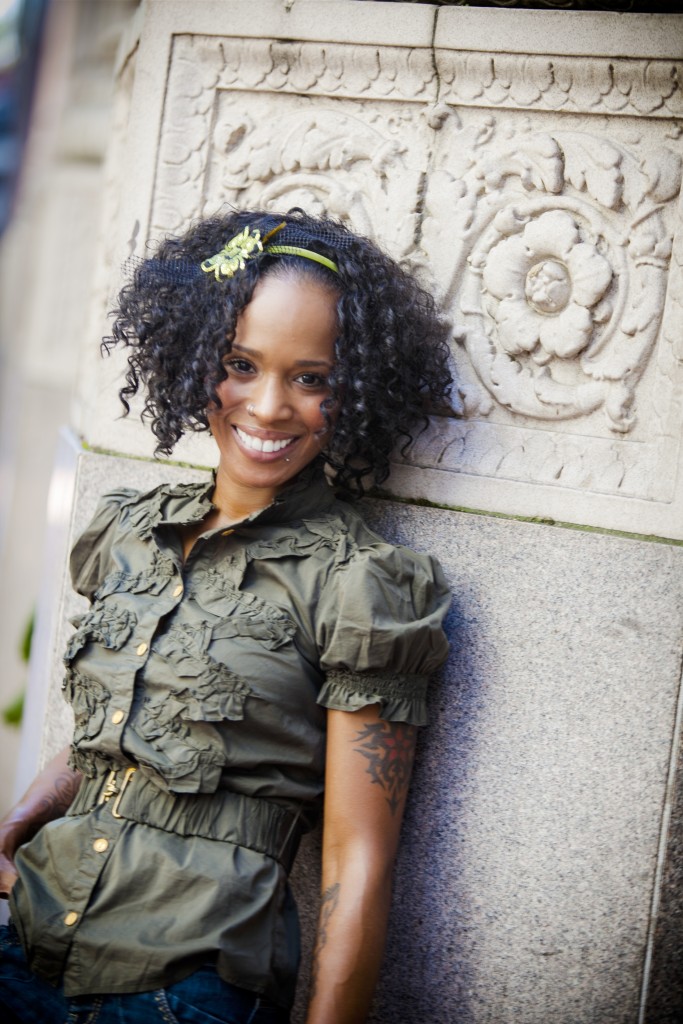An Interview With Humanism at Work Speaker Monica Miller
By Administrator
 In anticipation of this year's Humanism at Work conference, to be held in Boston on July 25, we are interviewing some of the people who will be speaking there. The first is Monica Miller, Assistant Professor of Religion & Africana Studies and Director of Women, Gender, and Sexuality Studies at Lehigh University.
In anticipation of this year's Humanism at Work conference, to be held in Boston on July 25, we are interviewing some of the people who will be speaking there. The first is Monica Miller, Assistant Professor of Religion & Africana Studies and Director of Women, Gender, and Sexuality Studies at Lehigh University.
1. Do you think there is a connection between religious belief and racial inequality in America?
Absolutely, belief (in god, one’s own potential, government, guns, etc.) provides the means for different people to think themselves better or worse than other people. And such beliefs impact social life options in interpersonal ways and over time in what we call systemic ways, deeply interwoven with law, policy, and other social mores, including those we understand as “religious.”
2. What role do you think social justice, and especially the fight for racial equality, should play in secularism/humanism?
Well, it depends on how a person understands those terms. If secularism/humanism is principally concerned with rejecting belief in a higher power, then it has the potential to become just as problematic as the “religious” perspectives. But if secularism is understood to be a rejection of ideologies and beliefs that short circuit life options, and if humanism is defined as a privileging of humanity, then the fight for racial equality is a vital component of such an orientation towards life. So from my perspective, the only secularisms/humanisms worth their salt will not simply be marginally concerned with the marginal, but will situate racial equality as absolutely central to their values, mission, etc.
3. What do you think secular/humanist organizations can do to foster more diversity, both within our communities and in the broader society?
Accept uncertainty and stop worrying so much about “god.” God remains just as powerful in its ability to shape the social life of humanists and atheists if those lives simply revolve around fighting against a boogie man that isn’t going away anytime soon. If these organizations are humanist, then privilege human life. Doing a good job at this will necessarily bring about a degree of uncertainty—so let’s embrace it. I’ve written about what I call “outlaw humanism,” brands of humanism that don’t necessarily look like what we imagine about humanism, but that are concerned to critically examine the world and fight for the worth of all of us. Making space for non-traditional forms of humanism in our midst is important, and so is the uncertainty thing, because if we do it well, then we won’t be making space within “our” movement, or making “our” movements and organizations better. Rather, getting better on the diversity front means realizing that these movements aren’t “ours” to begin with. To the extent they are humanist, then they belong to those who put human lives first. Coming to terms with letting go of our need to control the identities of our organizations, a hard task, nevertheless is central to making these organizations more diverse.
4. What are the most important public policy changes we need to make to bring about more racial diversity and equality?
This question is too big to fully answer, but here is a start: (1) End the war on drugs, as it has disproportionately impacted black and brown folks. (2) Give (former) felons back their right to vote. (3) Fight to end the impact of lobbies on Washington. (4) Impose term limits on all Senators and Congress people. (5) etc. etc. If you’re following, my point is that greater attention to democratic values can go a long way in promoting diversity and equality. America isn’t exclusively “white” anymore, and really, it never has been. So if we fight to ensure equal representation for all citizens, then we’ll be (partially) on our way to a society guided by greater equity.
5. What are some of the specific lessons you think we need to learn from what happened in Baltimore and Ferguson?
We need a near total overhaul of the criminal justice system. In certain of these cases, as in the murder of Michael Brown, Darren Wilson (on paper) did not do anything wrong. But his actions were egregious. Many of us admit this, but feel like we can’t do anything about it. Why? Because what needs to happen is so big. Historically, and in many ways today, to be black in America was to not be held suspect, but to literally be the definition of a criminal. Today’s legal system has merely been built up on top of this original arrangement. So the most specific lesson learned may well be the hardest to enact. We really need to begin again from scratch, and decide what sort of criminal justice system we want: one based on a racist arrangement, or one based on … I don’t know the answer, only that we should keep asking questions until we’ve found one.
For more information on the Humanism at Work conference, including speaker biographies, how to register, and hotel details, go to our blog.
